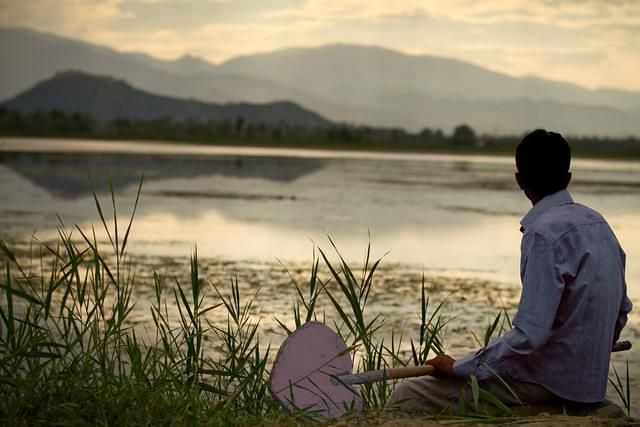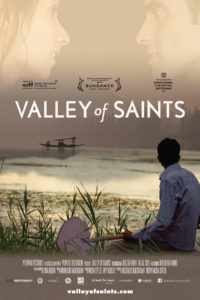One of the winners of the Alfred P. Sloan Prize at Sundance, Musa Syeed’s transition to features is an insightful and often tender film set against the harsh realities of northern India.
[stextbox id=”grey” caption=”Valley of Saints (2012)” float=”true” align=”right” width=”200″]
Director: Musa Syeed
Writer(s): Musa Syeed
Runtime: 82 minutes
Starring: Gulzar Bhat, Neelofar Hamid, Afzal Sofi
Festival: Sydney Film Festival 2012
Distributor: TBA
Rating (?): Highly Recommended (★★★★)
[/stextbox]
The beautiful Dal Lake provides the backdrop for Musa Syeed’s first narrative feature , having previously delivered non-fiction documentaries. Syeed, whose parents both hail from Kashmir, uses the land where his mother and father first met to portray an unconventional love story amidst great political turmoil. The dichotomy of this delicate ecosystem of the lake as contrasted with the delicate political balance in northern India is a straightforward one, but Sayeed allows himself and his audience the time to soak in the surrounds and make Dal Lake home for however brief a time.
Gulzar (Gulzar Bhat) is a boatman on the Lake, who spends his days taking tourists to see the various sights around the region. Sick of a life of near poverty in a shack with his uncle, he plans to flee the area with his friend Afzal (Afzal Sofi). However, their plans are interrupted when the nearby city of Srinagar is put under military curfew, leaving them with only the lake as their arena. Gulzar’s neighbour asks him to look after guests on his houseboat, which introduces him to a young Kashmiri-American woman Asifa (Neelofar Hamid), studying the pollution in the lake. As a tentative romance blossoms, tension arises between the two friends.
Drawing on his documentary background, Syeed makes the most of the natural surroundings to shoot this visually stunning and often quite tranquil film. His romance of sorts is not a conventional one, or at least one that Western audiences will not be familiar with. Gulzar and Asifa, played by non-professional actors, rarely spend any moments alone together, and there is a sense of inevitability to Gulzar’s destiny. Indeed, this romance doesn’t come close to being requited, rather being one of mutual fascination, partly sparked by the setting they inhabit. At any moment, the violence that keeps them on the lack threatens to interrupt their lives.
There is a rare intimacy to Valley of Saints that can only be achieved through Syeed’s rare combination of documentary closeness and refreshingly honest actors who seem to grow together as we watch them. This is true of the two male leads as much as it is of the romantic coupling. The unexpected inclusion of the environmental message emphasises just how fragile the balance is in this part of the world, when the life-giving water is polluted by those using it as their source of livelihood , illuminating just what can happen when the status quo is threatened. Indeed, Syeed has managed to subtly weave this same message through the romantic and political elements as well, so that Valley of Saints is a deceptively simple and pretty film masquerading as much more.
Valley of Saints played at the Sydney Film Festival in June 2012.






